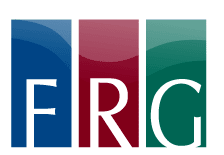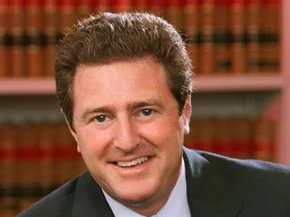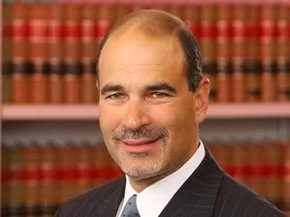PROTECTING AND ADVISING ENTREPRENEURS AND THEIR BUSINESSES
We know business.
Established in 1996, Friedman, Rosenwasser & Goldbaum, P.A. (“FRG”) is a “boutique” business law firm based in Florida. We concentrate on commercial transactions and litigation. We have substantial expertise in representing franchise companies in their national and international expansion, acquisitions and dispositions, contracts, licensing, trademarks, and dispute resolution.
Friedman
Goldbaum
Our services include:
Franchising, Licensing, and Other Business Expansion
Mergers and Acquisitions
Business Contracts and Business Transactions
Trademarks
Litigation, Arbitration, and Other Dispute Resolution
Franchise Services
FRG devotes a large part of its practice representing franchise companies in national and international expansion, which include: delivering franchise, corporate, trademark advisory, and dispute resolution services. In addition to representing many large franchise systems, the firm helps smaller companies plan and launch new franchise programs.
STRATEGIC ADVICE FROM ATTORNEYS AT LAW
Rosenwasser
FAQs
About
Franchising
-
The most common form of franchising is known as a “business format franchise” whereby a franchisor grants a license to a franchisee to operate a business under the franchisor’s trademark using the franchisor’s method of doing business. In most franchise systems, the franchisee pays to the franchisor an initial franchise fee as well as ongoing royalty fees. The initial franchise fee is usually paid in a lump sum upon signing the franchise agreement. Franchise fees can be as low as $1,000.00 but can reach $75,000.00 or more. Royalty fees are either a flat fee or are based on a percentage of the franchisee’s gross sales. Royalties are usually paid either weekly or monthly throughout the term of the franchise.
-
Franchising is regulated in the United States at both the state and federal level. At the federal level, franchisors must comply with the Federal Trade Commission Rule on Franchising, 16 C.F.R. Part 436 (the “FTC Rule”). The FTC Rule is primarily a disclosure law. The FTC Rule requires a franchisor to provide a prospective franchisee with a disclosure document containing prescribed information regarding the franchisor and its principals, and the general obligations of the franchisor and franchisee under the franchise agreement. The disclosure document is known as a “franchise disclosure document” or “FDD.” Approximately 15 states require the franchisor to register its FDD with a state agency before the franchisor is permitted to offer franchises for sale in that state. Some states have additional laws that regulate the relationship between a franchisor and franchisee. For example, some states do not permit a franchisor to terminate a franchisee or refuse to renew a franchisee unless the franchisor has “good cause.”
-
A business is franchisable if it is capable of duplication with a reasonable amount of training. In some sense, a business must be fairly simple to be franchisable. If a business is too complicated or requires a high degree of specialization it will be difficult to find and train franchisees to operate such a business. At a minimum, the business should be profitable, it should have detailed systems of operations, and it should have a marketing plan or program.
-
There are numerous resources to assist in finding a franchise, including books, magazines, and the internet. There are also franchise brokers, such as FranNet®, that attempt to match prospective franchisees with franchisors. We recommend that you first create a profile of yourself to determine what type of franchise fits your budget, your skills, your lifestyle, and your goals. Once you have determined the types of franchises that fit your model, you can then search individual franchise companies in those industries. You can compare franchisors by reviewing their respective Franchise Disclosure Documents. But most importantly, you should speak with as many franchisees as possible in the systems you are considering, to determine their experience with that particular franchisor. Hiring an attorney with franchise experience is also highly recommended.
-
There are numerous franchises available today that do not require a huge investment. Of course, there are others that require an investment of $1 million or more. You should work with a CPA or financial advisor to create a pro forma cash flow to determine your capital requirements. While Item 7 of the FDD will give you an estimate of the initial expense of opening the franchise, it is difficult to determine how long it may take before your business will generate positive cash flow.
-
No franchisor can or will guarantee that you will make a specific amount of money if you buy their franchise. Ironically, there is really no correlation between the amount of the initial investment and the amount of money that a franchisee might make. If a franchisor makes any representations regarding the income of its franchisees or a particular unit, they must do so in Item 19 of the FDD. These are called “financial performance representations.” Most franchisors choose not to make any financial performance representations. In such cases, the best strategy for determining how much money you can make is to canvass as many franchisees in the system as reasonably practical.
-
The primary advantages of buying a franchise (as opposed to starting your own business) are: (i) the franchisor has presumably refined its business and its systems to eliminate the “learning curve”; (ii) the franchisor may have a brand identity in your market; (iii) the franchisor should have a marketing program to generate the most business for your marketing and advertising dollars; (iv) many franchise systems have regional and national advertising cooperatives that permit you to advertise with other franchisees in media that you might otherwise not be able to afford; (v) you will have the support not only of the franchisor, but of the other franchisees in the system; and (vi) the franchisor may have purchasing cooperatives or supply arrangements that permit you to purchase your supplies and inventory at better prices than you could negotiate on your own.
-
The primary disadvantages of franchising for the franchisee include: (i) the payment of an initial franchise fee and ongoing royalty fees; (ii) restrictions on the products and services that you are permitted to offer (most franchisors dictate what products and services you can offer under their trademark); (iii) restrictions on sources of supply (some franchisors dictate from whom you must purchase certain products or services); and (iv) restrictions on transferability and succession planning (most franchise agreements require the consent of the franchisor before you can sell or transfer your business).
-
You should be looking for a franchise that fits your budget, and one that will allow you to achieve your personal goals. Many “hot franchises” flame out in a year or two. You should be interested in a franchise that you believe will be in business for a long time.
-
There is no legal requirement that you operate more than one unit of a business before you begin franchising. As a general rule, the more experience you have operating your business from different geographic and demographic locations, the more likely you will be to have experience dealing with issues that may confront your franchisees.




